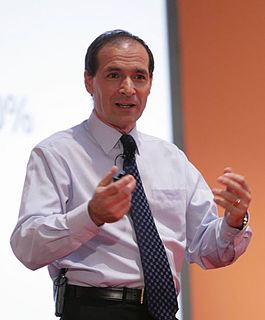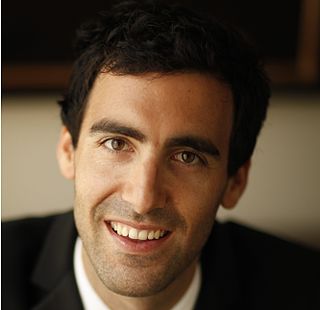A Quote by Patrick Dixon
The future of marketing belongs to honest information, accurate data and clear claims based on truth.
Related Quotes
We also use our imagination and take shortcuts to fill gaps in patterns of nonvisual data. As with visual input, we draw conclusions and make judgments based on uncertain and incomplete information, and we conclude, when we are done analyzing the patterns, that out picture is clear and accurate. But is it?
Disruptive technology is a theory. It says this will happen and this is why; it's a statement of cause and effect. In our teaching we have so exalted the virtues of data-driven decision making that in many ways we condemn managers only to be able to take action after the data is clear and the game is over. In many ways a good theory is more accurate than data. It allows you to see into the future more clearly.
... negative feelings are not true feelings at all; rather, they are your thoughts about something, based always on the previous experience of yourself and others. You will not find Truth in your past data, only past data that is based on other past data that is based on other past data, and so forth. Forget your "past experience" and look directly at the experience you are having. Right Here, Right Now. There is your Truth.
Data isn't information. ... Information, unlike data, is useful. While there's a gulf between data and information, there's a wide ocean between information and knowledge. What turns the gears in our brains isn't information, but ideas, inventions, and inspiration. Knowledge-not information-implies understanding. And beyond knowledge lies what we should be seeking: wisdom.
There is so much information that our ability to focus on any piece of it is interrupted by other information, so that we bathe in information but hardly absorb or analyse it. Data are interrupted by other data before we've thought about the first round, and contemplating three streams of data at once may be a way to think about none of them.
If there is no honesty, there is no relationship. The only degree to which there is a relationship is the degree to which you are honest. Expressing your clear desires does not make you a dictator and you telling what you think, feel, and what you want or don’t want, is just called being honest. It doesn't control him at all. You’re trying to control others by withholding information by not getting involved and by not being honest. Withholding information is a form of manipulation. It is dishonest and it’s destructive to a relationship.


































